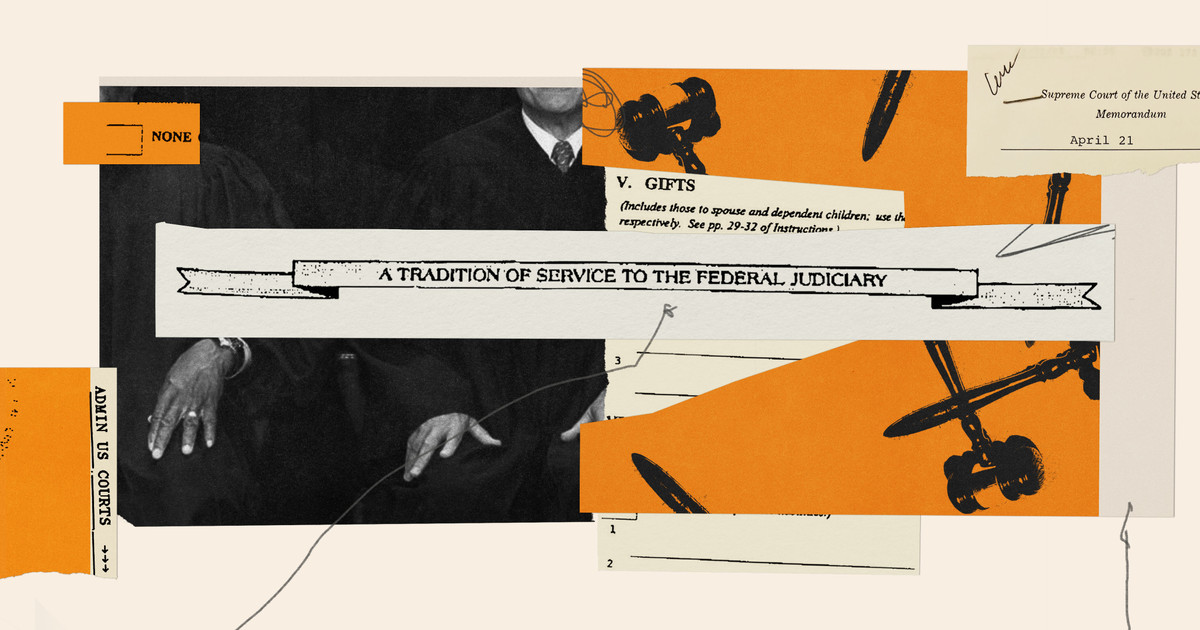The secretive Judicial Conference is tasked with self-governance. The group, led by the Supreme Court’s chief justice, has spent decades preserving perks, defending judges and thwarting outside oversight.
For decades, judges have relied on a select group to make sure the judiciary adheres to the highest ethical standards: themselves.
The Judicial Conference, a secretive, century-old council of federal judges led by the chief justice of the Supreme Court, oversees the ethics and financial disclosures for more than 1,700 federal judges, including the nine justices of the high court. Those financial disclosures, submitted yearly as a list of assets and gifts, are often the only window into whether judges with lifetime appointments have conflicts of interest as they rule on the country’s most consequential legal cases.
…
In reality, the Judicial Conference has instead often protected, not policed, the judiciary, according to interviews and previously undisclosed internal documents. For decades, conference officials have repeatedly worked to preserve judges’ most coveted perks while thwarting congressional oversight and targeting “disloyal” figures in the judiciary who argued for reforms.



You won’t get these reforms via incrementalism, and they won’t come from voting for the second worst candidate every time.